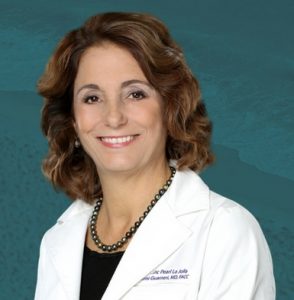Are You Inflamed?
 Inflammation is a biological response to harmful stimuli. The goal of inflammation is to remove the harmful stimuli from the body and initiate the healing process. Though it is a natural phenomenon of the human body, inflammation can have damaging consequences over the long term, typically as a result of poor lifestyle choices. Consider the difference between acute and chronic inflammation. The acute form is characterized by redness, pain, and swelling, and is the body’s natural protection mechanism. The chronic form is characterized by persistent inflammation that can last for several months or even years. In this scenario, the body’s immune system triggers an inflammatory response despite an absence of any harmful stimuli to fight off. Chronic inflammation can lead to joint erosion and damage to internal organs and other parts of the body.
Inflammation is a biological response to harmful stimuli. The goal of inflammation is to remove the harmful stimuli from the body and initiate the healing process. Though it is a natural phenomenon of the human body, inflammation can have damaging consequences over the long term, typically as a result of poor lifestyle choices. Consider the difference between acute and chronic inflammation. The acute form is characterized by redness, pain, and swelling, and is the body’s natural protection mechanism. The chronic form is characterized by persistent inflammation that can last for several months or even years. In this scenario, the body’s immune system triggers an inflammatory response despite an absence of any harmful stimuli to fight off. Chronic inflammation can lead to joint erosion and damage to internal organs and other parts of the body.
The food you eat. The quality of sleep you get. The extent to which you exercise, if at all. Whether or not you smoke. These and other behavioral and environmental factors can gradually lead to chronic inflammation and its various associated conditions such as arthritis, heart disease, dementia, ulcerative colitis, hepatitis, and ulcers, just to name a few. Dr. Mimi Guarneri – founder and president of The Academy of Integrative Health and Medicine and board-certified in cardiovascular disease, internal medicine, nuclear cardiology, and integrative holistic medicine – stresses the important role that diet plays in determining whether one will suffer from chronic inflammation at some point in life. According to Dr. Guarneri in her new book, 108 Pearls to Awaken Your Healing Potential, chronic inflammation is often linked to sensitivities to certain foods. An individual suffering from symptoms consistent with chronic inflammation is strongly encouraged to undergo food sensitivity testing, and to eliminate any foods from suspect categories from his or her diet to reduce the inflammation, feel better, and potentially ward off certain diseases. Common culprits include sugar, dairy, gluten, and eggs, as well as “white” foods such as potatoes and heavily refined grain products such as white bread, pasta, cookies, cakes, crackers, and various snack foods. Inflammation can further be avoided or addressed through regular exercise and stress-reducing practices like meditation.
Dr. Guarneri is a leading proponent of Integrative Medicine (IM), an approach to patient care that utilizes all appropriate therapies to achieve optimal health and healing. Instead of reactively treating existing illnesses, IM practitioners proactively seek to promote whole-person wellness by addressing the full scope of physical, social, environmental, mental, and spiritual influences that can affect a person’s health. Fundamentally, IM is concerned with achieving and maintaining health. It is grounded in the belief that health is not simply the absence of disease or infirmity but a state of complete physical, mental, and social wellness. It is a highly personalized, inquiry-driven approach to care that puts as much emphasis on health promotion and illness prevention as it does on post hoc treatment.
The American Board of Integrative Medicine (ABOIM) – an ABPS Member Board – was founded to provide IM practitioners the means of demonstrating their mastery of the core competencies of the specialty. Though the path to becoming an ABOIM Diplomate is rigorous, the benefits of becoming board-certified in this fast-emerging specialty are tangible and many, not the least of which are career advancement and increased opportunities for leadership. To learn more about the ABOIM, contact the American Association of Physician Specialists. The ABPS is the official certifying body of the American Association of Physician Specialists, Inc.






